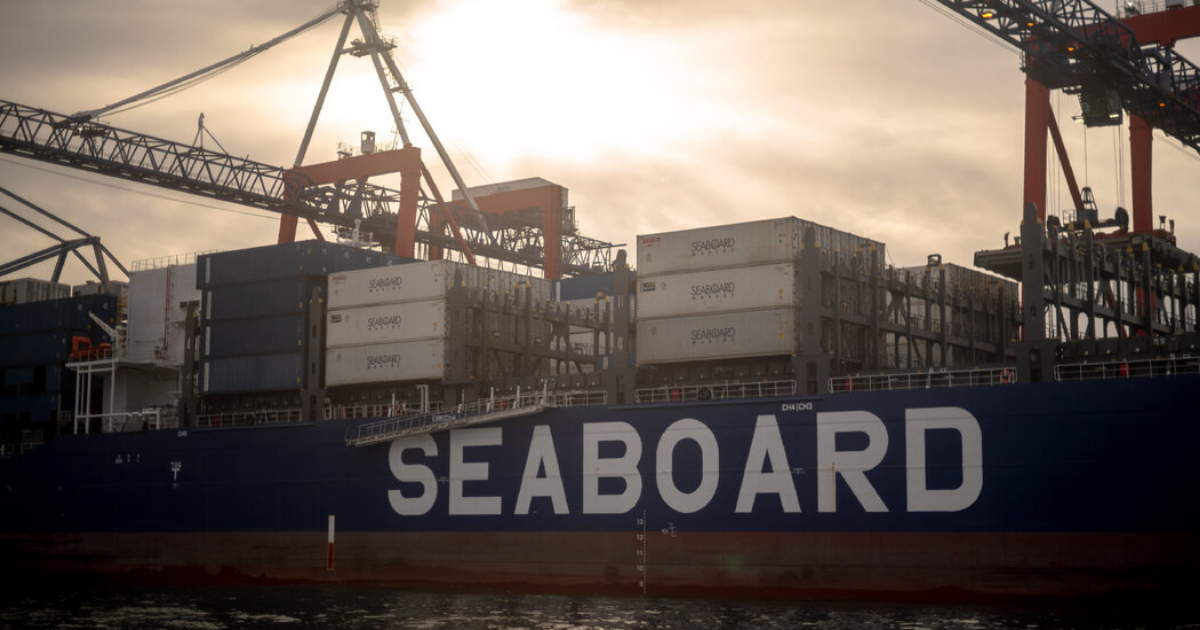The E.U. has the second-largest consumer market in the world behind America; China is third. But China and the E.U. have not exactly been cozy in recent years. Europe has regularly blasted China for overproducing and dumping artificially cheap products on the global market, and European leaders have criticized China’s stance toward Russia’s war in Ukraine, among other political and social issues.
Still, the E.U. is staring down 20 percent across-the-board tariffs in the United States, and even higher levies on major products like cars and trucks. China is confronting rates in excess of 50 percent. There’s a small chance that those tariffs could drive the two large economies closer together, experts said — an unintended consequence at a time when Mr. Trump’s America has been trying to weaken China.
There have been early hints of a thaw. The E.U. imposed higher tariffs on Chinese-made electrical vehicles last year, but China’s commerce ministry said at a news conference on Thursday that the two sides had agreed to restart negotiations. Olof Gill, an E.U. spokesman for trade, said officials had agreed to “continue discussions” on electric vehicle supply chains and take a “fresh look” at pricing.
But there is an even greater possibility that this moment will tear the E.U. and China further apart. China’s reduced access to American consumers could prod its companies to send even more cheap metals, chemicals and other products in Europe’s direction, worsening concerns about dumping and heightening already-high tensions on other matters. Relations between the two nations could deteriorate, widening the damage as America blows up longstanding global trade patterns.
“There’s two ways that this could play,” said Theresa Fallon, an analyst at the Center for Russia, Europe, Asia Studies in Brussels. “Europe is in a really tough position.”
President Trump and Howard Lutnick, the U.S. secretary of commerce, explaining the new tariffs on Thursday in Washington.Credit…Haiyun Jiang for The New York Times
Europe is responding quickly to Mr. Trump’s trade war. It plans to finalize next week initial lists of goods destined for retaliatory tariffs, and officials have promised more will come. It is also trying to negotiate to get rid of the tariffs, with the E.U. trade commissioner set to meet his U.S. counterparts through teleconference on Friday.
If the U.S. tariffs are not quickly negotiated away, Europe — and China — could find themselves looking for new consumers.
Another big part of Europe’s strategy? Making new friends.
Since late last year, the bloc has worked to expand relations with India, South American countries, South Africa, South Korea and Mexico. It has also drawn nearer to Canada and the United Kingdom, especially on defense issues.
Yet the U.S. is difficult to replace with one-off trade deals elsewhere because of the sheer size of its consumer market: $18.8 trillion in 2024, according to World Bank data. The E.U. trails at about $10 trillion, China at about $7 trillion. America is the E.U.’s most important export market.
Filling a U.S.-shaped void with China, while mathematically obvious, would be tricky. China and the E.U. have been moving further apart in recent years, with declining trade flows, and regular accusations by the E.U. that China is using trade practices that distort the market.
Europe’s dilemma when it comes to China has been on full display in the way that European leaders have talked about the Asian nation in recent months.
“We must engage constructively with China,” Ursula von der Leyen, who heads the E.U.’s executive arm, said during a speech in Davos, Switzerland, in January. She talked about expanding trade and investment ties “where possible.”
But when Mr. Trump’s tariff announcements came out this week, a flood of cheap goods coming from Asia was an immediate concern.
“We will also be watching closely what indirect effects these tariffs could have, because we cannot absorb global overcapacity, nor will we accept dumping on our market,” Ms. von der Leyen warned in her televised response on Thursday to the Trump tariffs.
The E.U. and China are to have a summit this year, though details on timing and location have yet to be determined.
Noah Barkin, a Berlin-based visiting senior fellow at the German Marshall Fund and a specialist on China, said: “Trump’s tariffs are likely to divert a massive amount of Chinese exports into the E.U.”
“The bloc is likely to throw its entire trade policy toolbox at Beijing in response,” he added. “It is difficult to envision a scenario where this ends well for the E.U.-China relationship.”



